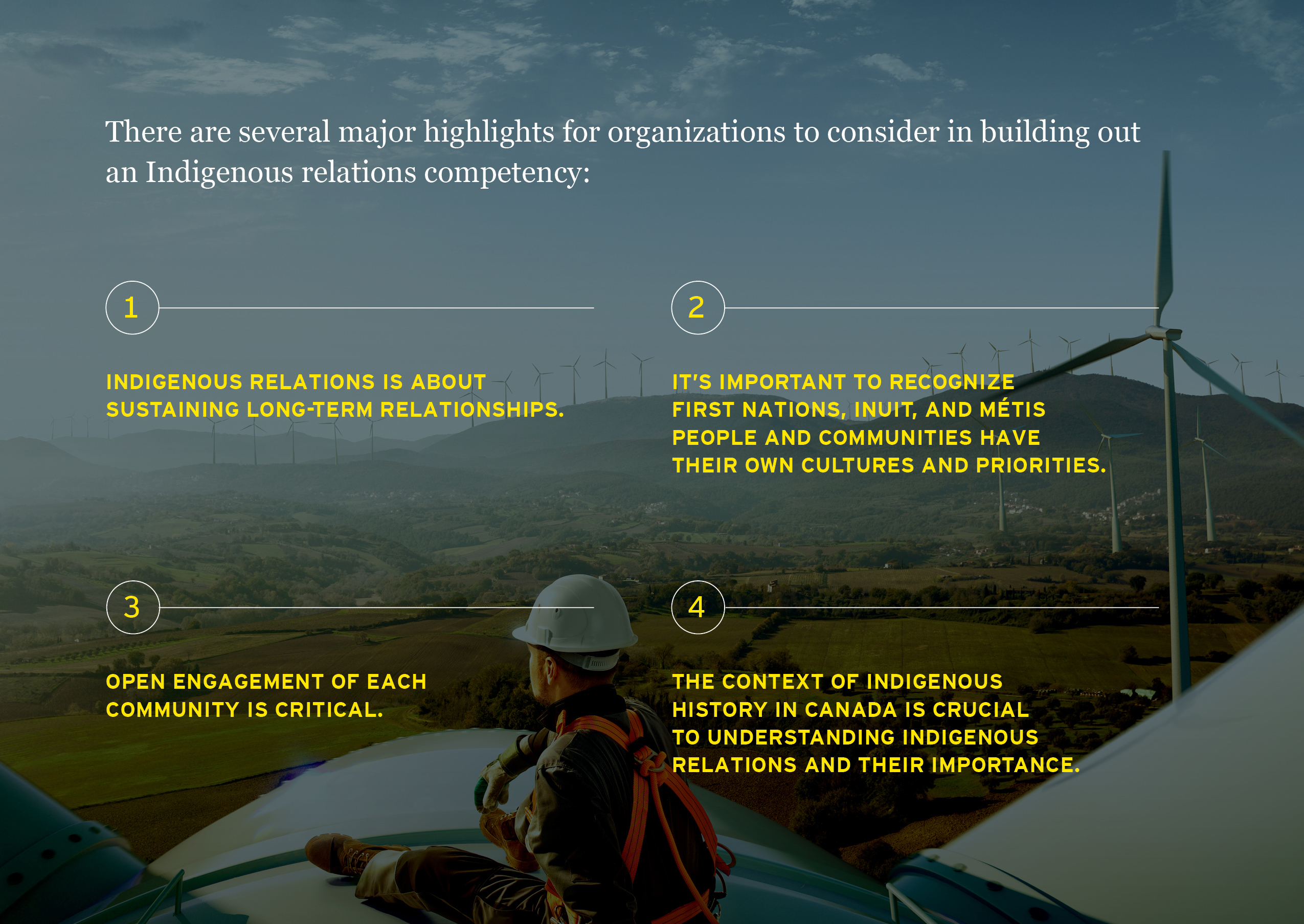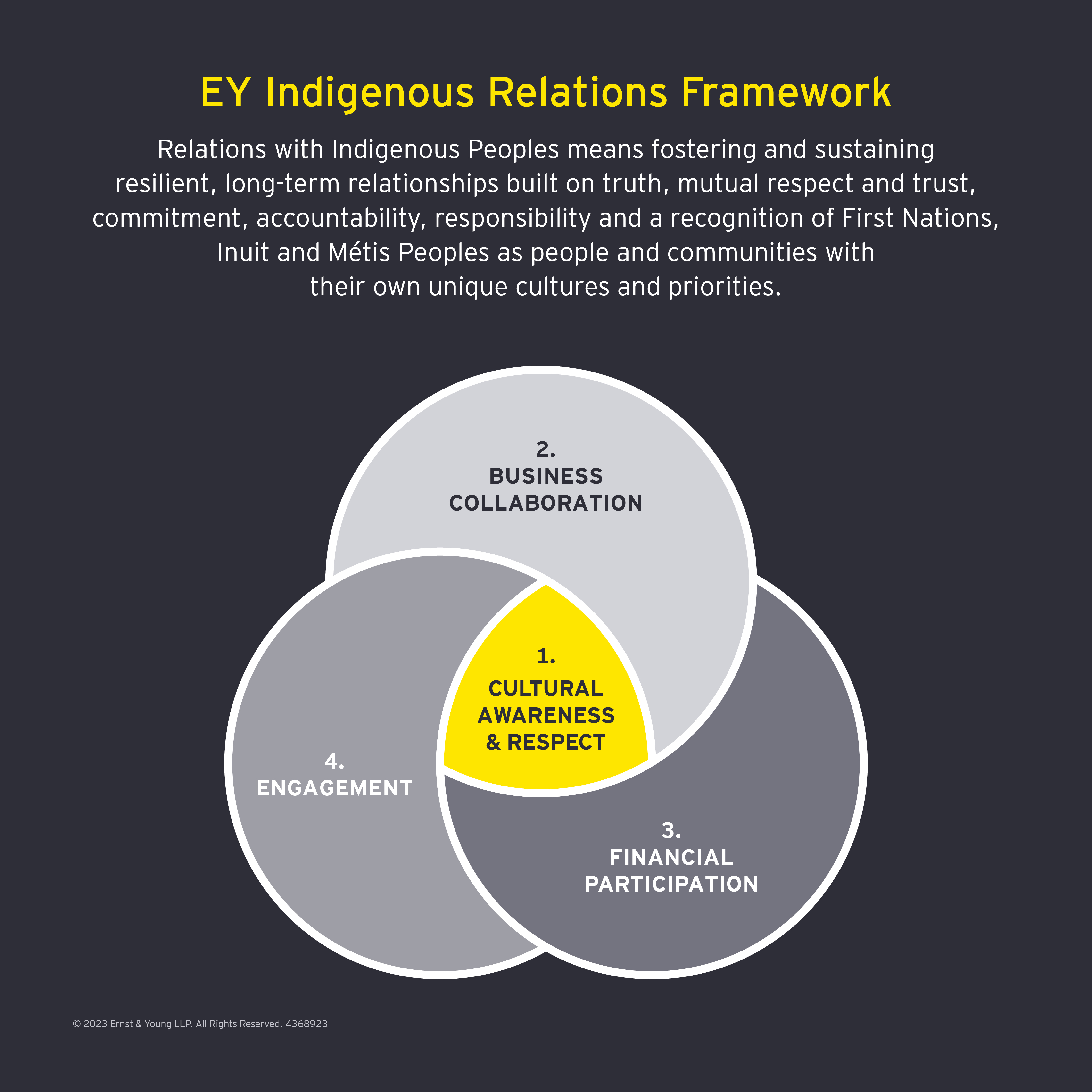As businesses advance, organizations are recognizing the increasing need to develop positive relations and collaborate effectively with Indigenous communities. This is specifically important to Canada’s energy and resources sector given the abundance of natural resources available across the country and the growing importance of responsible development and mitigating environmental and social impacts. Recent developments have shown — and are highlighted in select case studies throughout this report — that this includes engagement in free, prior and informed consent and participation from impacted Indigenous Communities.
Through EY Canada’s engagements and conversations with clients, Indigenous relations leaders, and the internal Indigenous Professionals Council, this report compiles research on the importance and benefits of positive Indigenous relations to help organizations build a business case for investing in meaningful collaboration with Indigenous communities.
Effective Indigenous relations in energy and resources organizations have numerous benefits, which we discuss in detail throughout this report. These benefits include environment, social, governance (ESG) and diversity equity and inclusion (DEI) performance, increased investment (from public and private markets, grants, incentives and government agencies), a broader and more diverse labour force, building credibility and trust, and advancing reconciliation.
In addition, there are several costs and risks to not advancing Indigenous relations capabilities, including reputational damage, loss of credibility and social trust, project delays or cancellations and creating an exclusive culture.
Relationships and agreements between corporations and Indigenous groups in Canada have come a long way over the past few decades. However, many corporations don’t know how to work effectively, equitably and meaningfully with Indigenous groups.
A study that assessed the commitment of over 500 medium-sized and large companies across various sectors in Canada showed that 85% are categorized as “disengaged” as it relates to engaging with Indigenous communities and their awareness, readiness, strategies, consultations and partnerships.¹
Organizations interested in building out their Indigenous relations competency, should factor in the following considerations:




